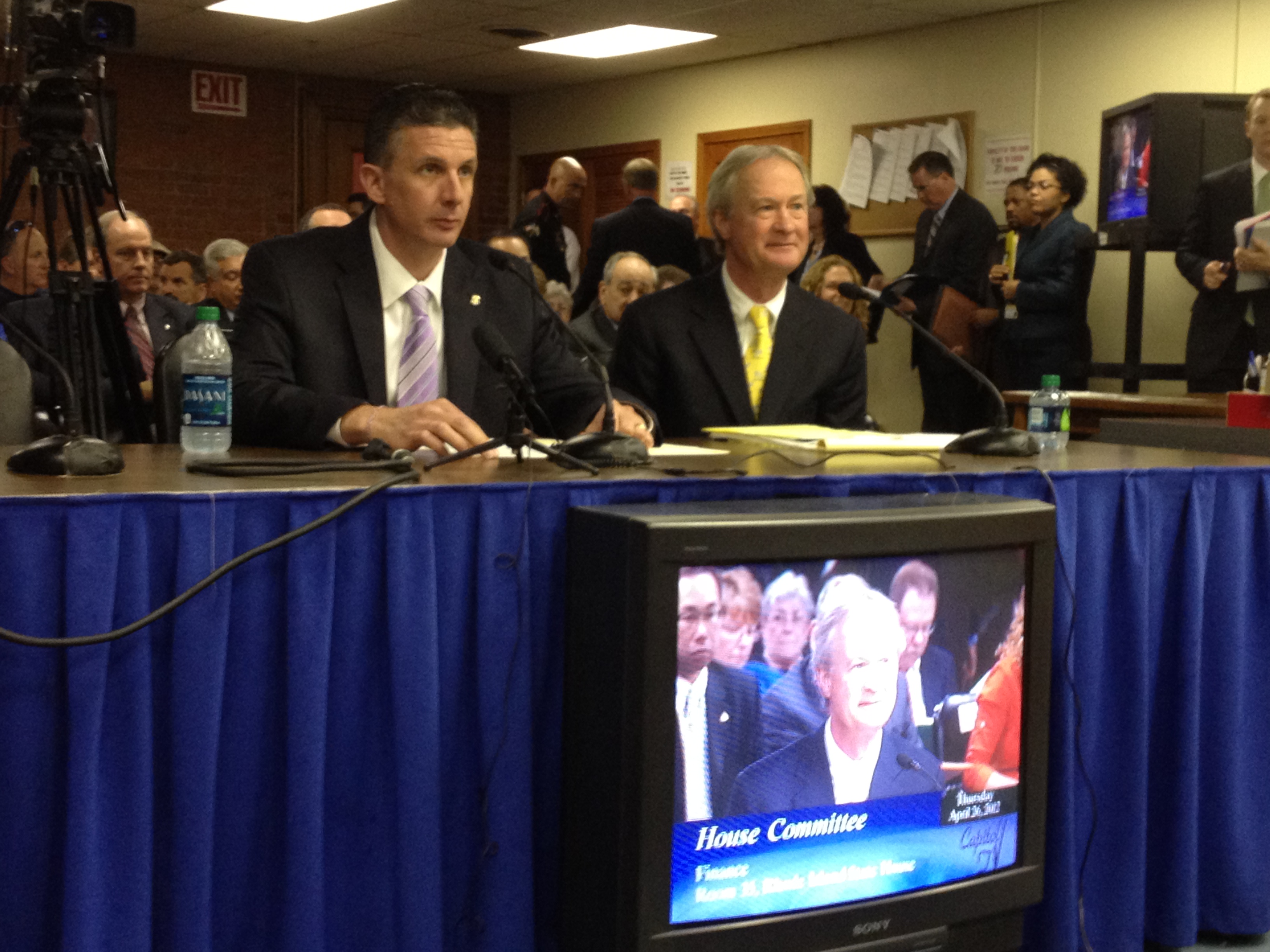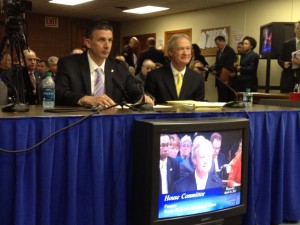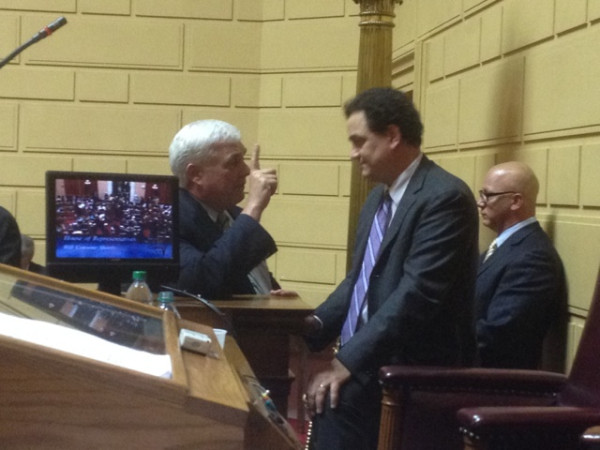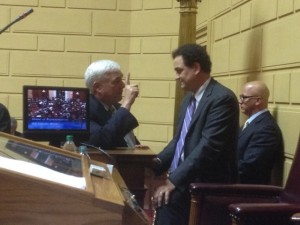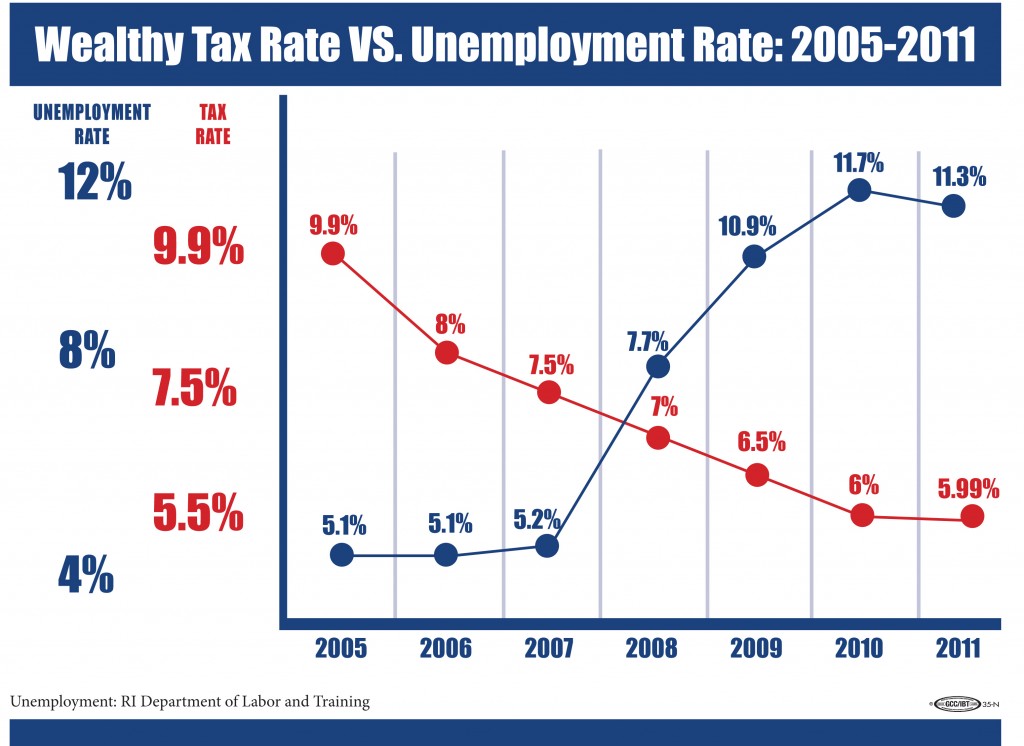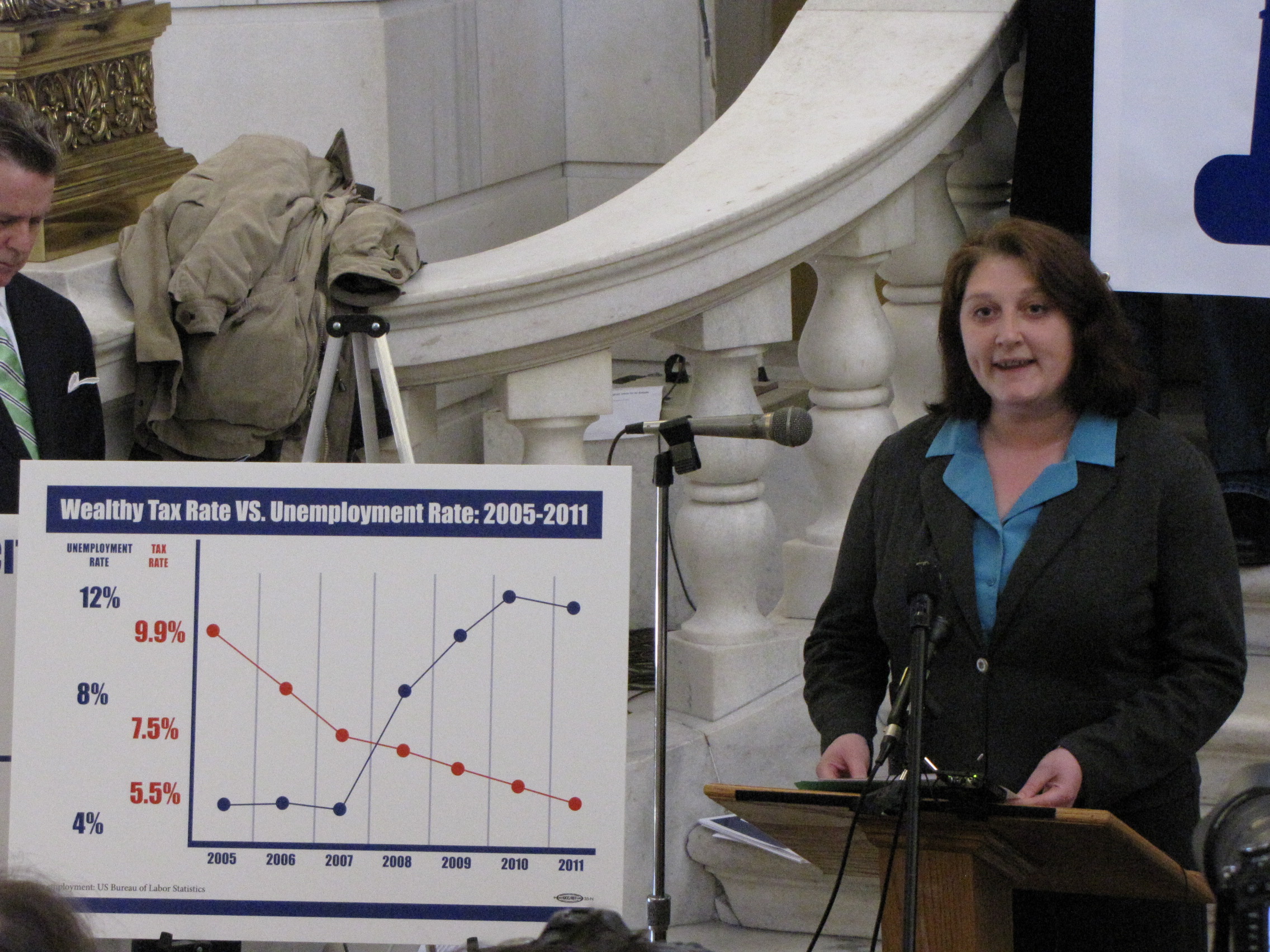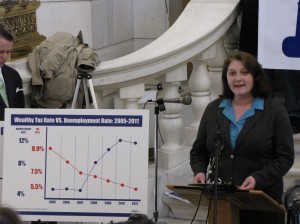 With state revenue projections lower than expected, progressive Providence Rep. Maria Cimini thinks income tax increases are more likely – and warranted – than corporate tax cuts.
With state revenue projections lower than expected, progressive Providence Rep. Maria Cimini thinks income tax increases are more likely – and warranted – than corporate tax cuts.
“I’m concerned that for too long we’ve been penny wise and pound foolish,” Cimini said in an interview this morning.
In previous years, social services have been cut to balance the budget and preserve tax cuts to the wealthy.
“Last year people said give it another year,” Cimini said. “Well here we are at another year and we still can’t support our citizenry. If we don’t look at ways to enhance revenue this year then we are saying as a legislative body that we are willing t0 protect upper income workers at the expense of everyone else.”
Cimini is the lead sponsor of one of the tax equity bills that has been supported by about half the House in the past two legislative sessions. Her bill would raise an estimated $66 million in new revenue and the state projects a $51 million revenue shortfall. Cimini wanted to make “very clear” that her bill was not seeking to repeal the 2010 changes to the income tax but rather, she said it seeks to “address many years of tax breaks to the wealthy.”
She said Rhode Islanders, businesses and the economy would all benefit from rolling back some of these income tax cuts. “While businesses do talk about tax consistency,” she said, “they also talk about a trained workforce and functioning roads and bridges
Cimini wrote an impassioned letter to her colleagues on Thursday calling on them to support a more robust Rhode Island through tax equity legislation. In it, she wrote:
Dear Colleague,
I was disappointed to learn our estimated revenues are lower than anticipated. Perhaps you share my disappointment. Maybe you had hope that this would be the year to lower the corporate income tax. We could restore the historic tax credit. We could fast-track the school funding formula. Perhaps we could invest in public transportation, higher education or workforce development. With the news that we’re encountering a large revenue shortfall, however, those opportunities to better Rhode Island may be in danger or lost.
As budget negotiations and conversations speed up in the next few weeks we discuss and think about how to balance this budget. Balancing the state budget can be accomplished by cutting spending, raising revenue, or a combination of the two. This year I encourage you to consider raising revenue.
We all want the best for our state, our families and our businesses. This session we heard great ideas at our economic conference. Perhaps you hoped to implement Connecticut’s small loans to local businesses, provide a greater investment in software and hardware to have a fully accessible on-line system for business permitting, create the new business re-locator concierge program, expand a public-private job training program or work toward a world-class pre-K through higher education public education system. Unfortunately, without revenue, those investments may be impossible.
This is a smaller deficit than we’ve faced recently. Between 2008 and 2010 Rhode Island had deficits in the hundreds of millions of dollars. Each year we did what we were elected to do. We balanced the budget. While this year’s deficit pales in comparison, in some ways the challenge may be greater. We have largely balanced those budgets by cutting spending. Some of that has worked. Current reports indicate that our revenue shortfall would have been worse but for a reduction in human service caseloads which occurred in part due to more stringent time limits and a reduction in services. Some will say there is always more to cut. I argue that it will be harder to find cuts that don’t cause real pain to middle class families.
Last year I sponsored legislation to increase the marginal tax rate by 4 percent on personal income over $250,000 year. That legislation was co-sponsored by nearly half the Assembly. It contained a tax reduction plan to coincide with a reduction in unemployment and was estimated to bring in about $120 million in revenue. Unfortunately it did not pass. There was consensus that, at minimum, there needed to be a clearer understanding of the impact of tax changes that went into effect in 2010.
This year we face another budget shortfall. Again, nearly half the Assembly cosponsored this bill. I’ve proposed raising income taxes on upper income earners. I heard the concern of the business community. They feel consistency is important. They thought tying the income tax to unemployment was detrimental. That part of last year’s bill is gone. This year, I propose a simple 2% on $250,000.
With the benefit of another year of tax data and having made more budgetary cuts, it is time to have this discussion. It is true that upper income earners pay a large portion of the income tax, but that is because they have a large portion of the income. The number of tax returns filed in 2012 by households with income above $200,000 increased by 16.5% over 2011. By comparison, other income brackets saw the number of tax returns increase by about 2 to 7%. For the same time period, the rate of income growth of the top tax bracket tax filers was 25%, while the rate of income growth for the lower five income brackets ranged from 1.75%-7.5%.
Those who testified against increasing income taxes argued that government has a responsibility to keep taxes low for the benefit of business and citizens. But is that the primary responsibility of government? Right now, 70% of our roads are rated poor or mediocre. We face a 20 year cost of $428 million to maintain and upgrade our drinking water. Our much needed school infrastructure costs are nearly $700 million.
Because of our on-going budgetary shortfalls we are not only limited in our ability to fully invest in a robust Rhode Island moving forward, but we are also not fulfilling our obligations to provide our neighbors with the services they depend on and deserve.
Our out year expenses may be quite large and would not be fully addressed through this income tax proposal, but our role is to look forward. There are many other pieces of legislation that would have an upfront cost with long term savings. Our colleagues have plans to address public transit funding, address long term homelessness and create state programs to better track state funding, program success and accountability. Cutting spending may fix today’s budget, but will it result in an ill-prepared workforce in a decade or two? Will our tourism and industry suffer if we don’t protect our environment?
Rhode Islanders and our economy are struggling to come out of recession. During the recession, we worked to not raise taxes. Instead we cut services to seniors, people with disabilities and our most economically vulnerable citizens. We eliminated general revenue sharing to cities and towns, and raised fees. And these flat costs are often the same regardless of income or ability to pay.
Since 2008 program revenues (charges for services) have increased in the areas of general government, human services, public safety and transportation. And after a drop in revenue from taxes in the 2009/2010 fiscal years, our revenues have almost, once again, reached 2008 levels. Unfortunately we still are not making ends meet.
Let’s have a real conversation about our hopes for Rhode Island. This year, our budget process can be an opportunity. This is an opportunity to think about all the hopes for economic advancement we have for our state’s businesses and families. Those plans for economic improvement come with a cost. Let’s make it an investment in the common good.
Sincerely,
Maria E. Cimini
District 7, Providence
 The General Assembly is giving serious consideration to passage of legislation (S-843/H-5696) that would mark a major step backwards in Rhode Island’s longtime efforts to protect privacy rights in the workplace. The bill would subject undefined “highway industry” employees to random and standardless drug testing procedures.
The General Assembly is giving serious consideration to passage of legislation (S-843/H-5696) that would mark a major step backwards in Rhode Island’s longtime efforts to protect privacy rights in the workplace. The bill would subject undefined “highway industry” employees to random and standardless drug testing procedures.










